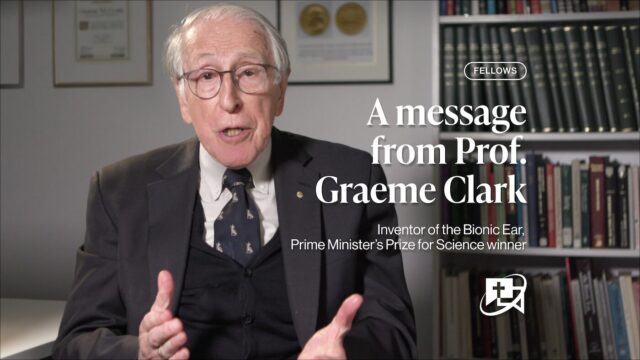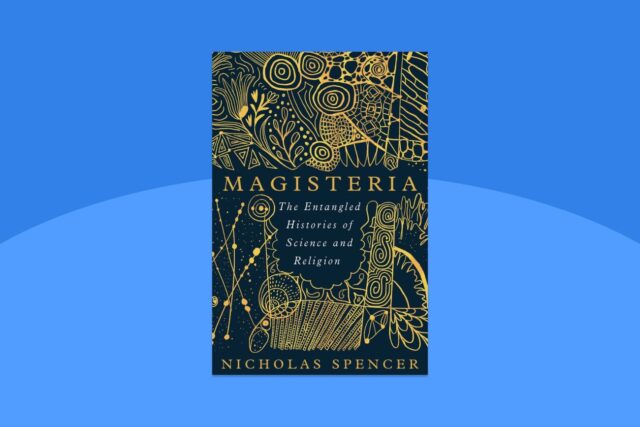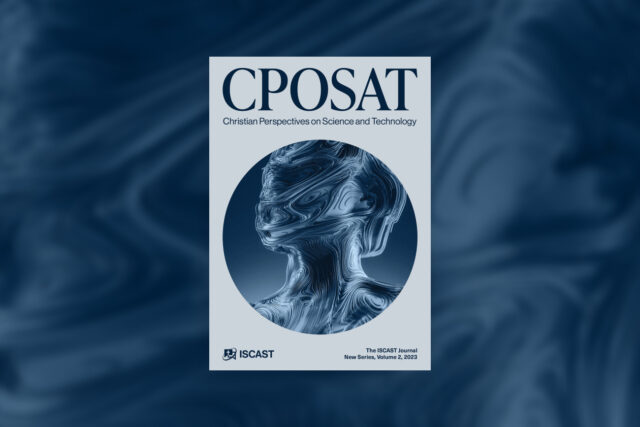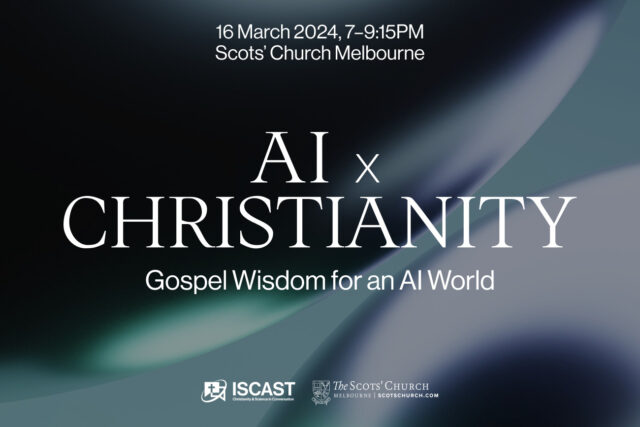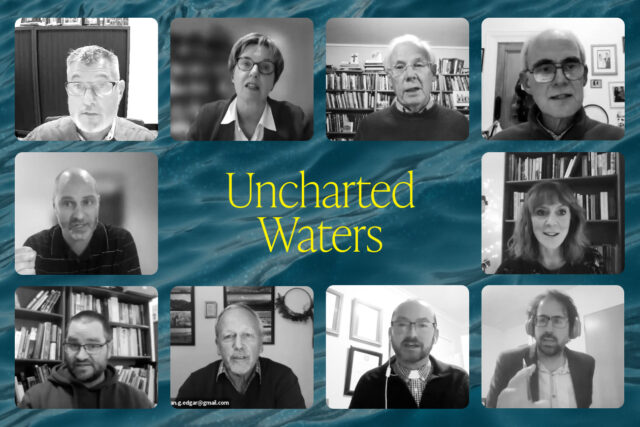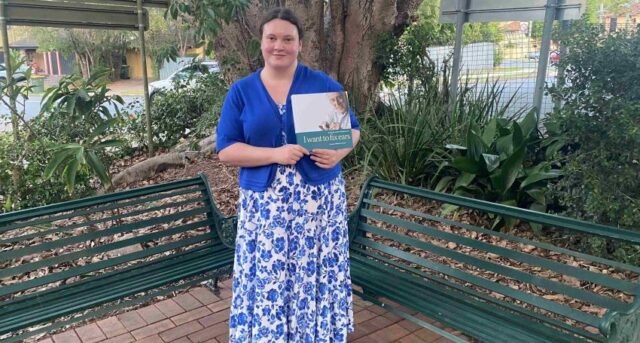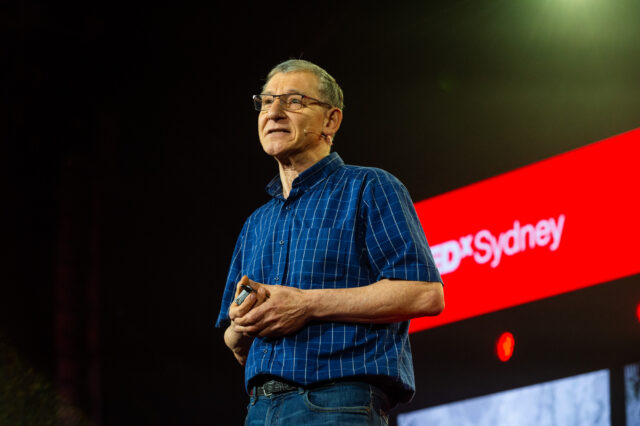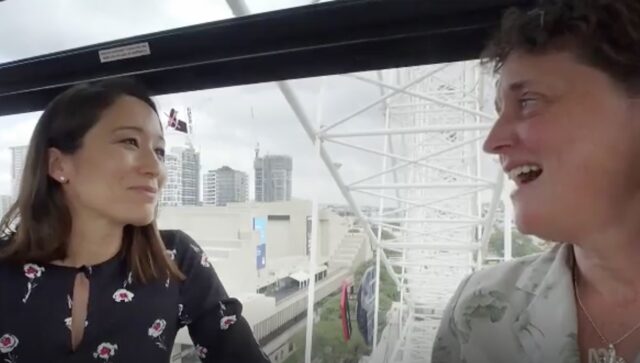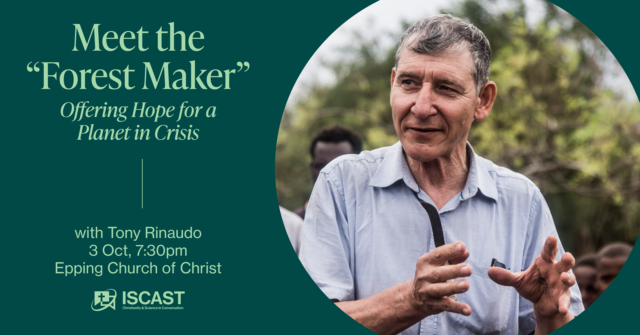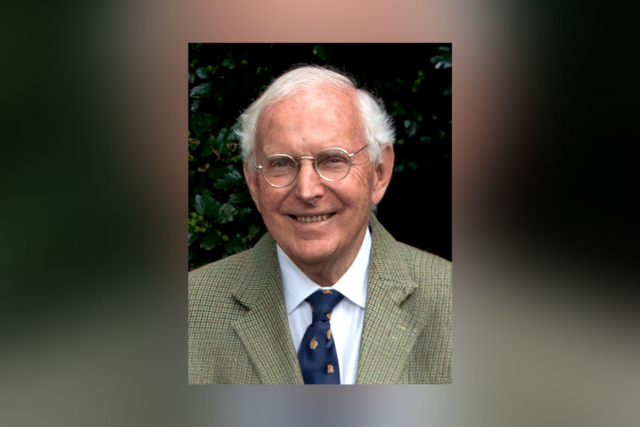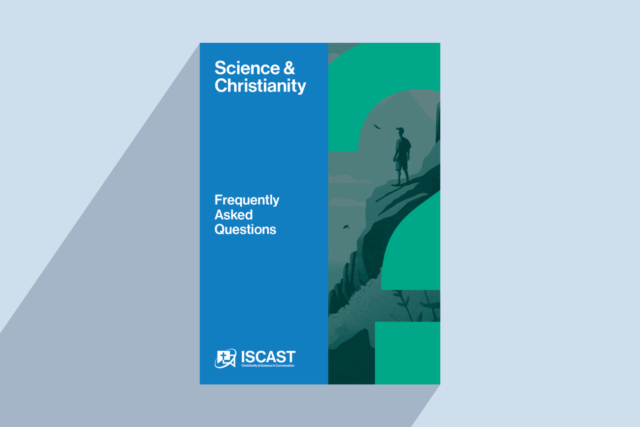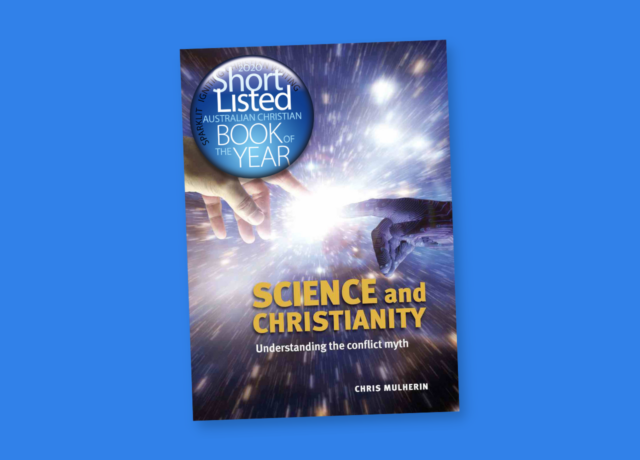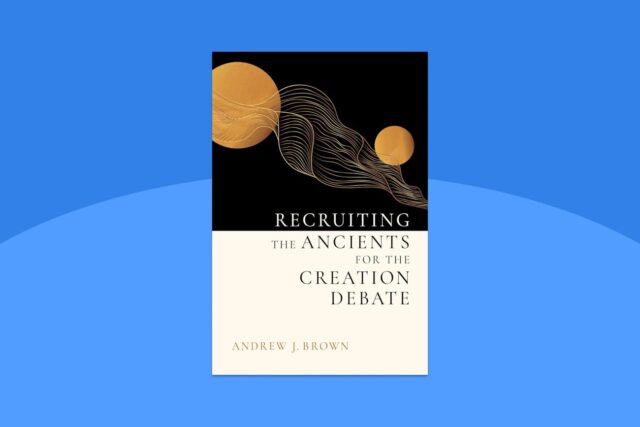


Whither ISCAST? Science-faith challenges in the 21st century
John R Pilbrow
Download PDF
WHITHER ISCAST?
SCIENCE-FAITH CHALLENGES IN THE 21ST CENTURY
Prof John Pilbrow, President ISCAST
A PERSONAL NOTE
I have counted it a great privilege to serve as President of ISCAST and as Chairman of the Board these past 3 ½ years. In many ways it is the culmination of a process that began for me in earnest 50 years ago as a physics honours student in NZ. An important event was a lecture to the IVF Graduates’ Fellowship in Christchurch by Cambridge Paleontologist, Martin Rudwick, who was visiting the University of Canterbury. I don’t remember the details now, but it left a deep impression on me that one could be both a practicing scientist and a professing Christian.
It soon dawned on me that science was about exploring God’s world, not looking for God in the laws of nature. Alister McGrath, in his recent Gifford Lectures, argues for a theology of nature, not to try to prove God’s existence, but rather as an outworking of a Christian understanding of reality.
As a Christian for more than 50 years, my professional career has been guided by the following insights:-
- God exists and the universe is his creation,
- All truth is God’s truth and the universe may be explored scientifically, and,
- A career in science is a respectable Christian vocation that requires our God-given minds and rationality.
- I am also indebted to what late Charles Coulson said in 1954, “When we come to the scientifically unknown, our correct policy is not to rejoice because we have found God; it is to become better scientists.”. As a result, I have studiously avoided the temptation to invoke the God of the Gaps as an explanation for what we don’t know.
ISCAST
ISCAST was founded in 1987 and picked up where the by-then defunct Research Scientists’ Christian Fellowship (RSCF) had left off a decade earlier. After 21 years, the ISCAST brand name is becoming better known and we are deemed to have some credibility at the science-faith interface. However, it must be recognized that the science-faith scene in Australia is not, nor has been, well-coordinated. We in ISCAST are seeking to do our part to remedy that.
Vision:
That Australasia hosts a dynamic dialogue, critically reviewing both science and religion, allowing each to influence the other as our understanding of reality progresses.
Mission:
To develop and advocate a Christian perspective in the science-religion dialogue within the science community, the Christian community and society generally in the Australasian and international communities.
BIENNIAL COSAC CONFERENCES:
Keynote speakers:
Robert John Russell from CTNS in Berkeley [1997], Sam Berry [1999], Owen Gingerich [2001], George Ellis [2005], Alister McGrath [2007], Prof Simon Conway Morris [2009].
CHAPTERS
- Chapters meet regularly in both Melbourne and Sydney and host Annual Lectures. Elsewhere public lectures are given by international speakers whenever possible.
· Public Lectures 2009 in Hobart, Melbourne and Sydney
Darwin’s Compass: How evolution discovers the song of creation, by Professor Simon Conway Morris
- New Chapter emerging in Bathurst-Orange.
ACKNOWLEDGMENTS
- To Robert Stening, standing down from the Board and as Secretary after 17 years, for his loyal and faithful contribution.
- To Alan Gijsbers who becomes President following the AGM on Sunday.
Our paths crossed 44 years ago at a SU/RSCF Science Weekend when Alan was still at high school and I was a brand new Lecturer in Physics at Monash University.
On Sunday Alan will further pursue issues regarding the future of ISCAST.
COMMUNICATIONS WORKING GROUP [CWG]
- New Website (www.iscast.org, Feb 2009)
2008 – $US30,000 Templeton Foundation Grant.
$US15,000 to establish the site + $US3,000 per year for maintenance and upgrading until 2013!
- ISCAST On-line Journal
- Notes on Science and Christian Belief [Revised], based on lectures at Ridley College, Melbourne, 1997-2001, will reappear on the website shortly.
- Website links to other organizations such as Christians in Science, Faraday Institute and Biologos [established by Dr Francis Collins, Director of the Human Genome Project 1992-2008]. Biologos has been granted permission to link to our website.
- There will be a short CWG presentation tomorrow evening.
EVENTS & OPPORTUNITIES
MELBOURNE
· Science-Faith–the Interface Service in St Paul’s Cathedral last February
An official event on the international Evolution – the Experience Conference program.
Three ISCAST members took part (See videos on the ISCAST Website).
· Inaugural National Science Week Service in St Paul’s Cathedral, August 16th.
Brainchild of Stephen Ames and Murray Hogg. ISCAST was a sponsor & I preached.
· Archbishop of Melbourne’s Monthly Breakfast Conversations in Federation Square.
o 19th May: Ian Hore-Lacy and Professor Ross Garnaut on Climate Change.
o 28th October: Robyn Williams (ABC Science Show) and I will participate.
· Cooperating with the Editor, The Melbourne Anglican, re topics and writers for a monthly Science-Faith series, at his request.
ISCAST (NSW) Lectures
[Some jointly with CASE – Centre for Apologetic Scholarship & Education]
2008 ISCAST (NSW) Annual Lecture – Neuroscience, Addiction and the Gospel, by Dr Alan Gijsbers.
2009
· The Role and Limit of Science in Moral Reasoning by Dr Lewis Jones.
· Manufacturing Humans: The Borderlands Between Human and Divine Control, by Professor Gareth Jones, DVC, University of Otago.
· Genetics, Evolution and Christian Faith, by Dr Graeme Finlay, Univ of Auckland.
· Carbon, Climate and Christians, by Dr Peter Neal
· All day workshop run by CEN [Christian Education National] involving Prof Conway Morris
· Links with CASE and CPX [Centre for Public Christianity]
QUEENSLAND
· Robert Stening and Ross McKenzie recently spoke at a Queensland Theological College Conference for The Academy and the Church.
WHITHER ISCAST?
- Meetings were held with Fellows and Associates around the country during 2006 to stimulate discussion about the future.
- At COSAC07 I laid down a challenge to encourage us to be pro-active in new ways.
- As I did not outline how this might be achieved, subsequently an ad hoc group (Richard and Alan Gijsbers, Tom Spurling and I) prepared a paper, Future Directions for ISCAST, considered by the Board last February.
- The revised paper, renamed On Appointing a CEO, contains recommendations:-
1. Appointment of an interim CEO in 2010, and,
2. Preparation of application for substantial five year funding from the Templeton Foundation to cover salary and overheads for a full-time CEO, administration, office expenses, travel, publicity, and special projects.
- Special Projects such as:
- Specialist conferences,
- Seminars and Workshops for, amongst others –
§ Teachers,
§ Senior Secondary Students,
§ Religious Education Volunteer Teachers.
§ Clergy,
§ Theological College Lecturers,
§ School Chaplains
§ Youth Workers,
- Undergraduates,
- Financial Support for Events
- Travel and registration subsidies for those from distant parts of Australia given the tyranny of distance.
- Honoraria and expenses for lecturers.
- Professional management of such events will be essential.
- Research Projects
- A quantum leap for ISCAST
- Exciting, daunting, possibly ridiculous or simply a ‘pipe-dream’?!
- Potential for ISCAST to move onto a bigger canvas.
- The aim is to open up new ways to influence church and community.
THE NATURE & SCOPE OF SCIENCE
- Science depends on empirical observation, repeatable experiments, testing of hypotheses and establishment of theories that can both explain existing phenomena and predict new phenomena.
- Science explores what is the case by investigating a world that really exists.
- Scientific laws, which only make sense in an orderly universe, codify the regularities we find in nature but they do not cause things to happen.
- The practice of science is universal.
- Scientists come from all cultures and religious traditions or no religious tradition at all.
- They share a commitment to scientific methodology which has an important in-built safeguard – peer reviewing of scientific papers, in contrast to Wikipedia!
- Published science is not just somebody’s opinion!
· Science also depends on trust.
o Since it is impossible to know everything, even in a single discipline, we have to trust others.
o Although my own experience is laboratory-based, I am persuaded by what biology, geology and astronomy reveal about the world.
SOME REMARKS ABOUT PHYSICS
This weekend is devoted to reflecting on the impact of the theory of evolution in science and its metaphysical and theological implications. Two more Charles Darwin Symposia will take place next week in Darwin; one run by the Charles Darwin University, the other by the Anglican Cathedral.
2009 is also the International Year of Astronomy, celebrating the 400th anniversary of the first use of an astronomical telescope by Galileo. It is appropriate that modern physics, which underpins cosmology and astrophysics, should get a mention.
The vocabulary of modern physics includes quarks, gluons, strings, superstrings, symmetry breaking, black holes, neutron stars, dark matter and much more besides, all of which involve ideas about reality far removed from everyday experience, and more counter-intuitive and fuzzy at the edges than we could ever have imagined.
- Physics can be summarised in little more than a dozen mathematical equations (albeit many in compact form). The mathematical nature of physics and subtle symmetries in nature point to an underlying structure in the universe.
- Relativity confronts us with a four dimensional world.
- Time, the 4th dimension, is not absolute, but depends on the observer and what is being measured.
- Gravity is the curvature of space-time.
- Relativistic effects, significant for very rapidly moving bodies, or close to massive objects, don’t affect our ordinary sense of an arrow of time.
- Modern quantum physics reveals a shadowy and unpredictable world at the atomic and sub-atomic level which, coupled with chaos theory, complexity theory and self-organizing principles of matter, points to a world open to new potentialities.
- Physics raises really deep questions about meaning and reality.
- While the universe is not totally predictable, God is not capricious!
- Physics has no single unifying principle comparable with evolution in biology. In spite of that, a coherent and comprehensible account of the universe from the Big Bang until now exists. It depends on just about all of fundamental physics.
TECHNOLOGY
We live in an age of science and technology. As scientific knowledge may be used for good or evil, we cannot avoid the moral and ethical dilemmas raised by technological applications of science such as cloning or atomic and nuclear weapons.
Ethical questions cannot be answered within science, but require the tools both of metaphysics, which is based on abstract general reasoning, and theology.
While my own primary interest is in fundamental science and the paradigms that have altered how we look at and think about the world, the time is ripe for us to look at the nature of appropriate and sustainable technologies consistent with a Christian view of reality. I don’t need to list the newest technologies that influence the world today – we are all familiar with them.
I have been thinking recently about the technologies and designs needed for a world that is called to respond to and worship God the Creator.
- There is a need to dialogue with those in the engineering and architectural worlds and to stimulate creative thinking about what sort of environment we should try to create for the 21st century.
- This includes the kinds of buildings and environments we inhabit and how they shape us. Is it for the better?
- Our thinking needs to go beyond the physical environment and climate change.
COURSES IN SCIENCE AND RELIGION
Though not ISCAST related, for our information I list four science-faith or science-religion courses currently being offered in Australia.
- UNSW [A/Prof Robert Stening]; On-line; enrolment~200. Began as a Templeton Award Course,
- University of Melbourne [Drs Stephen Ames & Neil Thomason]; made possible through a Templeton Grant; current enrolment ~ 100.
- Charles Sturt University/St Mark’s Theological Centre [Dr George Emeleus]
- Tabor College, Adelaide [Dr Graham Buxton]
DIALOGUE BETWEEN SCIENCE AND CHRISTIAN FAITH
For my Cathedral sermon last month, I chose the Prologue to John’s Gospel as my text. (The sermon may be found on the ISCAST website). I believe that it provides a link between why there is a universe at all and Jesus Christ, the divine Word. This is a helpful insight as we try to make sense of faith in the light of modern science and technology. Not only must we focus on the best science; our Christian faith must be authentic.
Robert John Russell argues that the science-faith/science-religion interface is a permanent part of the agenda already [Telephone conversation 2007].
ISSUES FOR THE 21ST CENTURY
SOME POPULAR MYTHS THAT NEED TO BE EXPOSED.
Popular myth 1: Science is all there is and it leads to atheism.
Whether practicing scientists recognise it or not, science rests on assumptions about the world and the nature of intellectual enquiry which cannot be derived from within science. Francis Collins, former Director of the Human Genome Project says, “Science is not threatened by God; it is enhanced. God is most certainly not threatened by science. He made it all possible. So let us together seek to reclaim the solid ground of an intellectually and spiritually satisfying synthesis of all great truths…”[1]
Science cannot be the ultimate reality because, although the scientific method is extremely successful, science cannot account for love, forgiveness, altruism, aesthetics, purpose in the universe, art and music. Musical acoustics can tell us about frequencies and patterns of notes, but not about the aesthetic experience of listening to Bach or Beethoven.
The claim that science, especially evolution, leads to atheism is propagated by atheists such as Dawkins and also by young earth creationists. This is a metaphysical assumption that is also a category error!!
Popular myth 2: Science and Faith are in Conflict.
This is regrettably true in many circles. The good news is that science and faith complement each other and responsible dialogue at the science-faith interface is achievable. Connections between concepts from faith and theology, on the one hand, and science on the other, involve metaphysics. The relationship is best explored through dialogue, not confrontation, recognizing that all truth is God’s truth.
Big Bang Cosmology and Biological Evolution are well established paradigms, yet they continue to be opposed by some sections of the church. The credibility gap results from an understandable lack of appreciation regarding the validity of scientific knowledge and also because the pursuit of science as a God-given responsibility is not well-understood.
The paradigm shift from Ptolemaic to Copernican cosmology 400 years ago seems trivial today given that the past century has shown the universe to be more open and unpredictable than we could ever have imagined.
Popular myth 3: Christianity is based on unsupported evidence.
Christianity relies on empirical evidence concerning the life, death and resurrection of Jesus Christ. These events in the gospels are not to be taken just as revelation but to be subjected to proper historical and linguistic scrutiny. They are pivotal for understanding our relationship with God and each other, and the Christian hope that this life is not all there is.
Popular myth 4: The post-modern assertion that we can’t be certain about anything.
The success of modern science is actually a denial of post-modernism. Why? Because science represents a body of knowledge that is not about personal preference or mere opinion. After all, aeroplanes fly and vaccination works.
While people holding different worldviews will disagree at the metaphysical level about the meaning of science, the consensus amongst scientists about the main findings in science is a fact to be reckoned with. While science remains a work in progress, and our knowledge is incomplete, what we do know points to a universe that really exists.
OTHER ISSUES AT THE SCIENCE-FAITH INTERFACE
Scientific
· Cutting edge science in the 21st Century (RJ Russell, conversation 2007)
o Neuroscience
o Big Bang Cosmology and the New Creation.
· Modern genetics & the human genome.
Metaphysical
· We must focus on the big picture
o Details remain important but we all need to look up from our microscopes, telescopes and spectrometers to ponder the big questions such as,
o Why we are here, why there is anything here, why there is a universe at all?
o At best our answers to all these questions will always be incomplete
· We all have questions about faith and science that we cannot answer so we need to seek out those who can help us.
o Dialogue between theologians and scientists is essential if the former are to present a viewpoint that takes account of all knowledge, including the reality of modern science.
o We need a Christian vocabulary that transcends existing barriers.
o Key issues are common to thinkers of all traditions.
· An important on-going issue will be to convince those outside science that science is a valid human activity [see Gen 1:26].
· Isn’t it remarkable that we apparently insignificant creatures are able to make comprehensible and meaningful statements about our amazing universe.
· Einstein’s comment, The most incomprehensible thing about the universe is its comprehensibility, has deep significance since we are both participants and observers!
· Both top-down and bottom-up thinking is needed [RJ Russell, conversation 2007].
· Prof Conway Morris argues in Life’s Solution that our emergence was inevitable. I agree. It makes no sense for a universe such as ours to exist without the inevitable emergence of conscious, intelligent and sentient beings.
o There is a case to be made that this must be embedded in the very nature of matter and requires that as we proceed up a hierarchy of complexity, the behaviour at each new level of complexity cannot be explained simply from the properties of the component parts.
Theological
· How do we deal with the challenges to traditional ways of expressing Christianity in the light of the new knowledge thrown up by science, and vice versa?
· Our sun will die in ~5 billion years. Long before that, earth will be uninhabitable, raising questions for Christian eschatology and the meaning of life after death.
Technological
· Global warming with its challenges to our local thinking, traditional ethics, decision making processes etc..
· Biotechnology with its challenges to our understanding of “what is human?”.
· Stem cells with its challenge to understanding when life starts.
· Technologies that shape our environment.
General
· Is it reasonable for a scientist or a science teacher to be a Christian? This remains a critical question, not perhaps for those of us here tonight, but for many out there in church and community.
· Modern science and the resulting technologies have changed the world forever and there is no going back. This is even more evident when we consider the increasing world population and the need for levels of organisation and planning unknown in the past.
· Test of Faith materials produced by the Faraday Institute in Cambridge. These include materials for use by church congregations; they are about to be supplemented by resources for Youth Ministries and Sunday Schools. John Lucas has some of these and you might like to talk to him.
· We need to understand what is happening in other disciplines including the humanities.
CONCLUSION
In conclusion, people of faith have nothing to fear from scientific discoveries even though 19th C and 20th C science has changed forever our perception of the world and of our place in it.
Biology, physics and cosmology each in their own way show how intimately we are related to the rest of the creation.
Science is to be understood as God’s providential gift to us and thus it is logical for a scientist to be a Christian in today’s world.
Do we want to hide our light ‘under a bushel’ or rise to the challenge placed before us? ISCAST is but one group of people who bring considerable collective expertise into the spectrum of issues at the science-faith interface. There are many others who share our viewpoint who need to be encouraged to become involved. Indeed there are some younger, high profile scientists of Professorial rank who are Christians, but who are not active in the science-faith arena. They may have much to contribute.
I want to conclude with some words of wisdom written by St Augustine of Hippo [354-430], that are just as apposite today as when first written some 1600 years ago. His insight is that as we carry the flag both for faith and science, we must be both authentic believers and also informed believers. That will be the task for ISCAST and other similar groups and their members throughout the coming century.
“Usually, even a non-Christian knows something about the earth, the heavens, and other elements of this world, about the motion and orbit of the stars and even their size …, and this knowledge he holds to as being certain from reason and experience.
Now, it is a disgraceful and dangerous thing for an unbeliever[2] to hear a Christian, presumably giving the meaning of Holy Scripture, talking nonsense on these topics; and we should take all means to prevent such an embarrassing situation, in which people show up vast ignorance in a Christian and laugh it to scorn …
If they find a Christian mistaken in a field which they themselves know well and hear him maintaining his foolish opinions about our books [meaning the bible], how are they going to believe those books in matters concerning the resurrection of the dead, the hope of eternal life, and the kingdom of heaven ?”[3]
QUESTIONS FOR DISCUSSION IN SMALL GROUPS – 15 MINUTES
Please would you attempt to provide feedback on some of the questions below.
· Please identify other popular myths that could be added to the list below, and why.
1. Science is all there is and it leads to atheism.
2. Science and Faith are in Conflict.
3. Christianity is based on unsupported evidence.
4. The post-modern assertion that we can’t be certain about anything.
5.
6.
7.
· What do you consider are likely to be the cutting edge sciences in the 21st Century?
· What strategies do you think would help in establishing a more informed environment regarding science and technology throughout the whole church?
· If ISCAST manages to secure significant funding for new initiatives, what kinds of events would you be interested in participating in as a presenter or as a participant.
· How do we deal with the challenges to traditional ways of expressing Christianity in the light of the new knowledge thrown up by science, and vice versa?
· What criteria can we use to critique new technological developments?
· What can we do from a Christian viewpoint to influence technologies that shape our world?
· What kinds of materials would you like to see ISCAST develop for church and church related activities and organisations?
[1] Collins, F, 2006, The Language of God, Free Press, New York, p 233.
[2] Infidel was replaced by unbeliever.
[3] Augustine of Hippo, The Literal Meaning of Genesis, circa 400, Book 1, chapter 19, section 39; translated and annotated by John Hammond Taylor, S. I., 2 vols. (Ancient Christian Writers, Nos. 41, 42), (New York: Newman Press, 1982), vol. 1, pp. 42-43.
